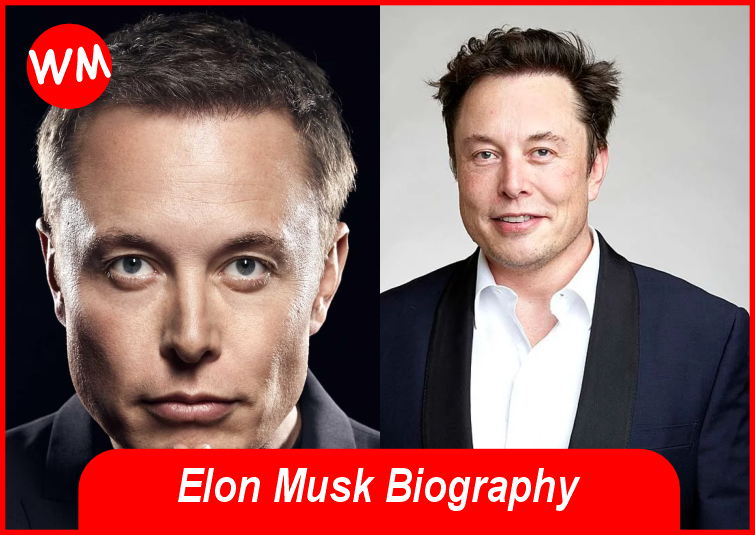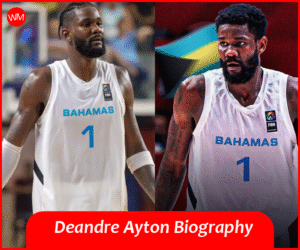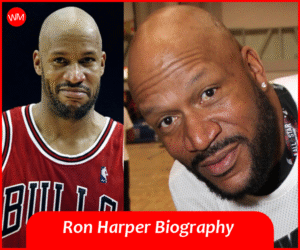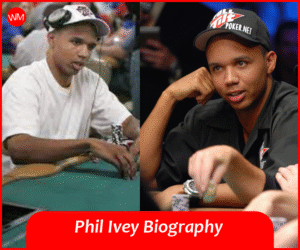
Elon Musk Biography – Explore the life of Elon Musk, covering his net worth, age, family, ventures like Twitter and robotics, and his remarkable achievements and awards.
Elon Musk stands as one of the most influential figures in modern technology and business. From revolutionizing electric vehicles to exploring space and reshaping digital communication, Musk’s ventures have left an indelible mark on various industries.
Elon Musk Biography: Profile Summary
| Field | Details |
|---|---|
| Name | Elon Reeve Musk |
| Profession | Entrepreneur, Engineer, Inventor |
| Nationality | South African, Canadian, American |
| Age | 53 years (born June 28, 1971) |
| Education | Bachelor’s degrees in Physics and Economics from the University of Pennsylvania |
| Net Worth | Approximately $500 billion |
| Height | 6 feet 2 inches (188 cm) |
| Father | Errol Musk |
| Mother | Maye Musk |
| Children | 14 children |
| Notable Companies | Tesla, SpaceX, Neuralink, The Boring Company, Twitter (now X Corp) |
| Notable Awards | Axel Springer Award, IEEE Honorary Membership, Royal Society Fellowship |
Important Facts
- Serial Entrepreneur: Founded multiple groundbreaking companies, including Tesla and SpaceX.
- Wealth Status: As of March 2025, his net worth is approximately $500 billion.
- Family: Father to 14 children with various partners.
- Twitter Acquisition: Acquired Twitter in 2022, rebranding it as X Corp.
- Robotics: Through Tesla and other ventures, actively involved in robotics and AI development.
Early Life and Education
Birth and Family Background
Elon Reeve Musk was born on June 28, 1971, in Pretoria, one of South Africa’s three capital cities. He is the eldest of three children born to:
- Maye Musk (née Haldeman) – a Canadian-born model and dietitian, known for her successful modeling career that spanned decades.
- Errol Musk – a South African electromechanical engineer, pilot, and sailor, who also dabbled in property development and mining. Musk’s relationship with his father has been described as difficult and strained, especially in later years, with Elon calling him “a terrible human being” in interviews.
Elon has two siblings:
- Kimbal Musk – an entrepreneur and restaurateur.
- Tosca Musk – a filmmaker and producer, co-founder of the streaming service Passionflix.
Early Interests and Personality
From a young age, Musk exhibited exceptional intelligence, a vivid imagination, and an intense fascination with technology and space. He was an avid reader, consuming a wide range of science fiction and non-fiction books. He has cited Isaac Asimov’s Foundation series as a major influence, shaping his philosophical approach to civilization and progress.
Described as introverted and awkward, Musk was often bullied in school, to the point that he once had to be hospitalized after a severe beating by classmates. He later recalled his school years in South Africa as emotionally and physically painful, which may have contributed to his drive to leave the country and make a fresh start elsewhere.
First Ventures in Technology
At the age of 10, Musk developed a keen interest in computing when he got his first Commodore VIC-20, an early home computer. By age 12, he taught himself programming and developed a video game called Blastar — a space-themed shooter game — which he sold to a computer magazine for $500.
This early success demonstrated his technical skill and entrepreneurial instincts.
High School
Musk attended Waterkloof House Preparatory School and later graduated from Pretoria Boys High School. While academically talented, he did not find much intellectual stimulation in the traditional school environment.
At 17, eager to avoid mandatory military service under South Africa’s apartheid regime and to pursue broader opportunities, Musk decided to emigrate.
Education and Move to North America
Queen’s University (Canada)
In 1989, Musk moved to Canada to attend Queen’s University in Kingston, Ontario. He chose Queen’s partly because his mother was born in Canada, which helped him obtain citizenship more easily, and because he wanted to get to the United States — he later said this was his way of stepping-stone migration.
At Queen’s, he met Justine Wilson, his future first wife. He studied there for two years and began developing his ideas around business and technology, gaining confidence as a speaker and thinker.
University of Pennsylvania (USA)
After two years, Musk transferred to the University of Pennsylvania (UPenn) in 1992 on a scholarship. He pursued two bachelor’s degrees simultaneously:
- A Bachelor of Science in Physics from the College of Arts and Sciences.
- A Bachelor of Science in Economics from the Wharton School of Business.
His time at Penn allowed him to blend scientific inquiry with business strategy — a duality that would later define his ventures.
While at Penn, he lived in an off-campus house that he and a friend turned into a makeshift nightclub to earn money. Musk also conducted research and internships, including one at Pinnacle Research Institute, where he worked on ultracapacitors for energy storage.
Brief Time at Stanford
In 1995, after completing dual bachelor’s degrees in physics and economics at the University of Pennsylvania, Elon Musk was accepted into a prestigious PhD program in applied physics and materials science at Stanford University in California. His academic interests centered on advanced energy storage technologies—particularly ultracapacitors, which he believed could one day revolutionize the automotive industry by replacing traditional batteries.
However, Musk’s time at Stanford was extraordinarily brief—lasting just two days.
Why Did He Leave So Quickly?
Musk arrived at Stanford during a pivotal moment in Silicon Valley. The Internet revolution was in full swing, and a growing number of young entrepreneurs were launching online businesses that promised to reshape the global economy. The mid-1990s marked the rise of web browsers, e-commerce, and digital content—entirely new industries were being born overnight.
Musk immediately recognized the potential of the Internet to be a far more disruptive and democratizing force than any scientific research he could pursue in academia. He felt that working on cutting-edge web technologies could have a much more immediate and profound impact on the world than years of theoretical or laboratory work.
Rather than spend the next several years in a university lab, Musk made the bold decision to drop out of Stanford just two days after enrolling, choosing instead to immerse himself in the tech startup ecosystem.
Launching Into Entrepreneurship
Shortly after leaving Stanford, Musk teamed up with his brother Kimbal Musk to launch Zip2, a software company that provided online business directories, maps, and navigation tools to newspapers—essentially an early precursor to services like Google Maps combined with Yelp.
They funded the venture with money borrowed from their father and lived frugally, working out of a small rented office and sleeping on the couch to save costs. Elon coded the platform himself, while Kimbal handled business development. They faced rejection from many potential investors and customers, but gradually gained traction as more newspapers began to recognize the Internet’s importance.
Zip2’s success would ultimately validate Musk’s decision to leave Stanford. The company was sold to Compaq for $307 million in 1999, giving Elon his first major financial windfall—$22 million, which he would reinvest in future ventures like X.com, SpaceX, and Tesla.
In Retrospect
Musk’s decision to leave one of the world’s top research institutions just days after starting might seem reckless to some, but it was in keeping with his risk-tolerant, vision-driven personality. He has often said that the window of opportunity for transformative technologies doesn’t stay open forever, and in 1995, the Internet was that window.
It also reflects a recurring theme in Musk’s life: he consistently prioritizes real-world impact and scalability over formal credentials or conventional career paths.
Career Beginnings and Major Ventures
Elon Musk’s career in technology and entrepreneurship began in earnest in 1995 when he co-founded Zip2 with his brother Kimbal Musk. The company offered software that helped newspapers develop online city guides, complete with maps, business directories, and navigation. Despite early resistance from the print industry, Zip2 gained significant traction and was eventually sold to Compaq for $307 million in 1999. Musk received $22 million from the sale.
Later in 1999, Musk used his earnings to launch X.com, an online banking and financial services platform. X.com was among the first to provide fully online banking. However, internal disagreements over strategy led to Musk being replaced as CEO. In 2000, X.com merged with a company called Confinity, which had developed a money-transfer service called PayPal. By 2001, the merged entity focused entirely on PayPal. Musk was ousted from leadership again but remained the largest shareholder. eBay acquired PayPal in 2002 for $1.5 billion in stock, netting Musk $165 million.
That same year, Musk founded Space Exploration Technologies Corp. (SpaceX), driven by his vision of making life multiplanetary and colonizing Mars. SpaceX initially struggled, with its early Falcon 1 rocket failing three times before a successful launch in 2008. The same year, SpaceX secured a $1.6 billion contract with NASA to deliver cargo to the International Space Station. Since then, SpaceX has revolutionized the aerospace industry with innovations like the Falcon 9’s reusable rockets, Crew Dragon, and Starship, its next-generation fully reusable spacecraft.
In 2004, Musk became involved with Tesla Motors, investing $6.5 million in the company and becoming its chairman of the board. Though not a founder, he took on a leading role in shaping Tesla’s mission and product design. Under his leadership, Tesla launched electric vehicles such as the Model S, Model 3, Model X, and Model Y, and expanded into battery energy storage and solar power through the acquisition of SolarCity. Tesla has become a dominant force in the global EV market.
Other ventures include:
- The Boring Company (founded in 2016) – aims to solve urban transportation problems through underground tunnel networks.
- Neuralink – a neurotechnology company developing brain–computer interfaces.
- OpenAI – Musk co-founded this AI research lab in 2015 but stepped down from its board in 2018.
Acquisition of Twitter
In April 2022, Elon Musk offered to acquire Twitter Inc. for $44 billion, citing his desire to preserve free speech and promote transparency on the platform. The offer was initially met with skepticism and resistance from Twitter’s board, which even adopted a “poison pill” strategy to fend off the acquisition. However, after weeks of negotiation and legal maneuvering, the deal was finalized in October 2022.
Upon taking ownership, Musk quickly implemented sweeping changes, including:
- Firing the executive team, including CEO Parag Agrawal.
- Laying off thousands of employees.
- Overhauling content moderation policies.
- Rebranding the platform as “X”, under the umbrella of X Corp., a company Musk envisions as an “everything app” — integrating social media, payments, messaging, video, and potentially AI-based services, modeled after platforms like China’s WeChat.
Musk’s leadership of Twitter has been controversial, attracting both praise and criticism for its drastic policy shifts and unfiltered style.
Involvement in Robotics and AI
Musk has long been concerned about the potential dangers of unchecked AI development. He co-founded OpenAI in 2015 to promote friendly AI and ensure its benefits are widely shared. Although he departed from its board in 2018 due to conflicts of interest with Tesla’s AI work, he remains vocal about the need for AI regulation and transparency.
Within Tesla, AI plays a crucial role. The company has developed a powerful AI system for its Autopilot and Full Self-Driving (FSD) software, aiming to enable autonomous driving without human intervention. Tesla also designed its own supercomputer, Dojo, specifically for AI training purposes related to its fleet of vehicles.
Musk also introduced the Tesla Bot, later named Optimus, a humanoid robot unveiled in 2021. Optimus is intended to perform dangerous, repetitive, or mundane tasks, potentially revolutionizing manufacturing, logistics, and even domestic help.
In 2023, Musk launched a new AI company, xAI, with the mission of “understanding the true nature of the universe.” The company released its own large language model, Grok, integrated directly into X (formerly Twitter), showcasing Musk’s ongoing influence in the generative AI space.
Personal Life
Elon Musk’s personal life has drawn considerable public attention due to his high-profile relationships, unconventional parenting, and philosophical outlook.
- Musk was first married to Justine Wilson, a Canadian author, in 2000. They had six children: their first son, Nevada, tragically died of SIDS in infancy. They later had twins and triplets through IVF. They divorced in 2008.
- He later married (and divorced twice) British actress Talulah Riley.
- In 2018, Musk began a relationship with musician Grimes (Claire Boucher). They have three children together: X Æ A-12, Exa Dark Sideræl (nicknamed Y), and a third child named Techno Mechanicus.
- In 2021, it was revealed that Musk had twins with Shivon Zilis, an executive at Neuralink, via IVF.
Musk has emphasized the importance of population growth and has stated that one of his reasons for having many children is concern over declining birth rates globally. His naming conventions for his children have sparked media fascination, reflecting his interest in science fiction, technology, and symbolism.
Achievements and Awards
Throughout his career, Musk has received numerous accolades, including:
- Axel Springer Award: Recognized for his innovative accomplishments.
- IEEE Honorary Membership: Awarded for his contributions to engineering and technology.
- Fellowship of the Royal Society: Honored for his exceptional contributions to science.
Conclusion
Elon Musk’s visionary endeavors have significantly impacted various sectors, from sustainable energy and space exploration to digital communication and artificial intelligence. His relentless pursuit of innovation continues to shape the future of technology and industry.
FAQs About Elon Musk
1. What is Elon Musk’s net worth?
As of March 2025, Elon Musk’s net worth is approximately $500 billion.
2. How many children does Elon Musk have?
Elon Musk has 14 children with various partners.
3. What are the names of Elon Musk’s children?
Some of his children’s names include X Æ A-12, Exa Dark Sideræl, Tau Techno Mechanicus, Strider, Azure, Arcadia, and Seldon Lycurgus.
4. Which companies has Elon Musk founded?
Elon Musk has founded or co-founded several companies, including Tesla, SpaceX, Neuralink, The Boring Company, and X Corp (formerly Twitter).
5. What are some of Elon Musk’s notable achievements?
Musk’s notable achievements include revolutionizing the electric vehicle industry with Tesla, advancing space exploration with SpaceX, and contributing to the development of renewable energy solutions.
6. Has Elon Musk received any significant awards?
Yes, Elon Musk has received several prestigious awards, such as the Axel Springer Award and IEEE Honorary Membership, and he is a Fellow of the Royal Society.
7. What is Elon Musk’s involvement in artificial intelligence and robotics?
Through his companies, particularly Tesla, Musk is actively involved in developing AI technologies and robotics, focusing on applications like autonomous driving and humanoid robots.
8. Did Elon Musk acquire Twitter?
Yes, in 2022, Elon Musk acquired Twitter and rebranded it as X Corp, aiming to expand its functionalities beyond social networking.
9. What is Elon Musk’s educational background?
Elon Musk holds bachelor’s degrees in physics and economics from the University of Pennsylvania.
10. Where was Elon Musk born?
Elon Musk was born in Pretoria, South Africa, on June 28, 1971.





